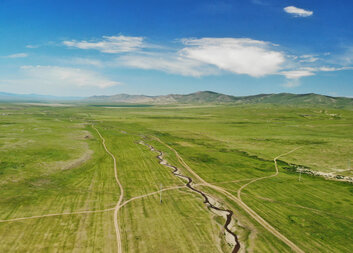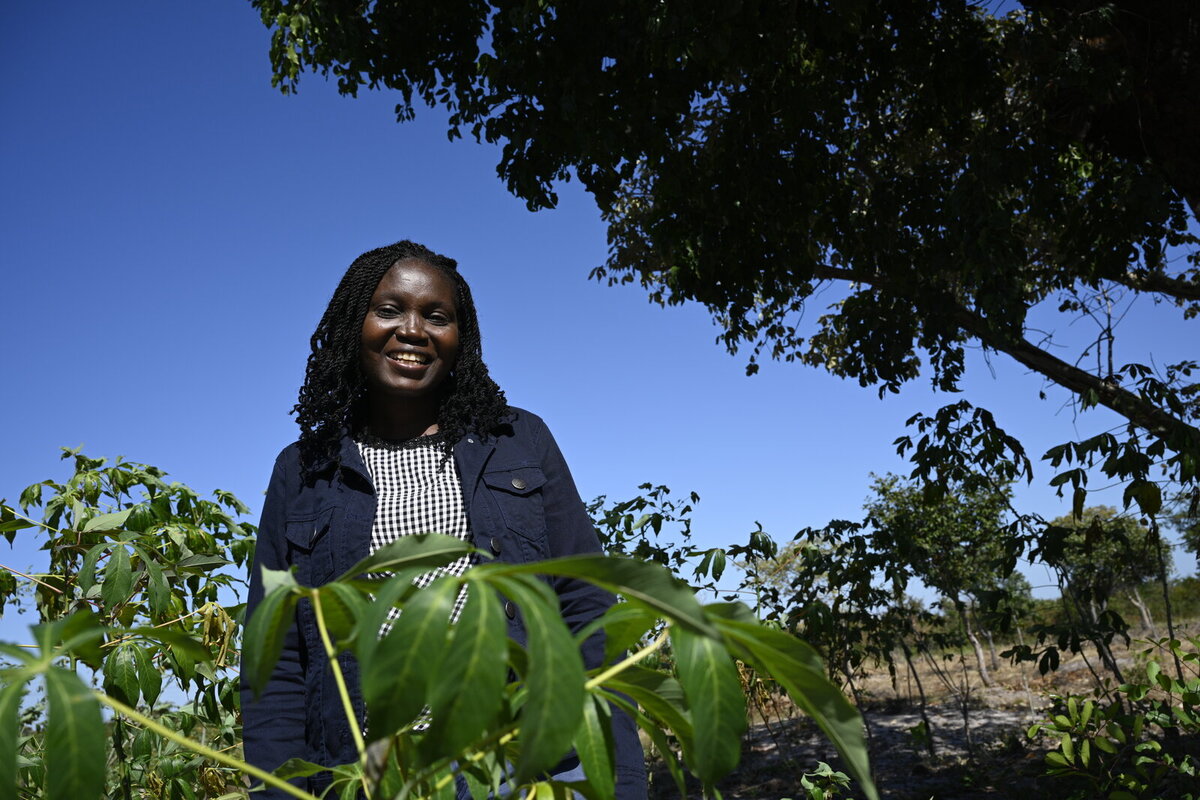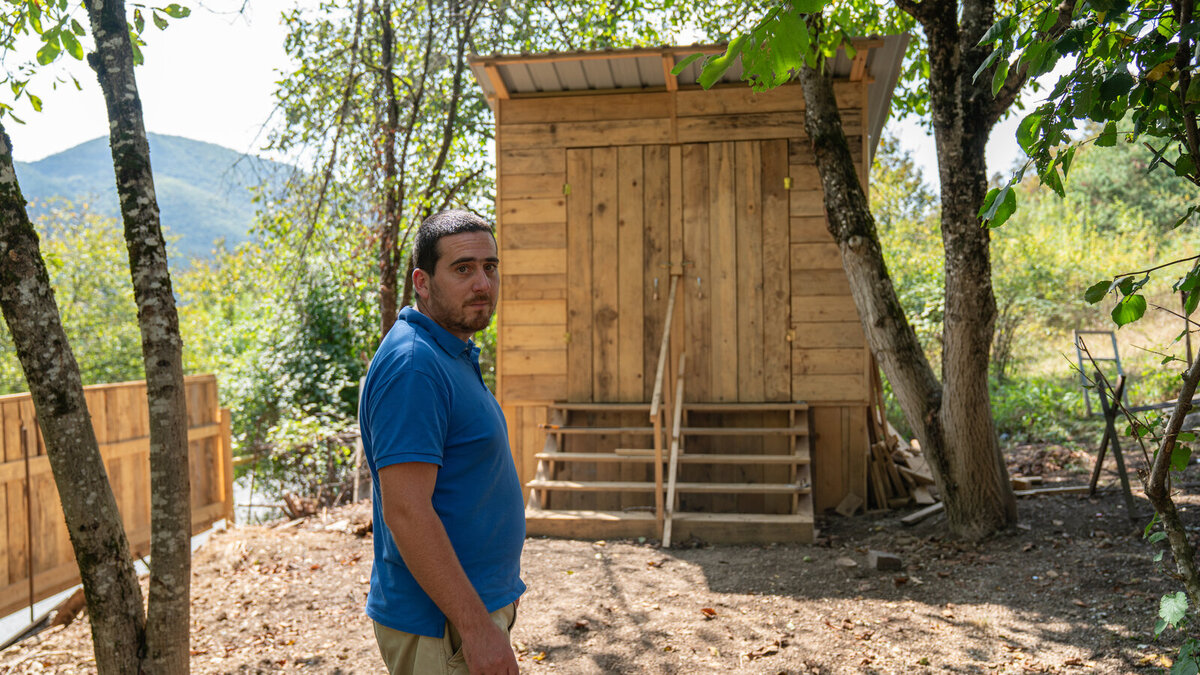At Caritas Czech Republic, we care about our planet. That is why we help protect it in several countries around the world. In Iraq and Zambia, we support farmers in adapting to climate change so that they can continue to grow and harvest successfully. In Moldova and Georgia, we are introducing the benefits of composting, and in Mongolia we are helping to prevent plastic waste from flooding the beautiful countryside. What else does Caritas Czech Republic do to protect the environment?
1. Trainings in modern farming methods to farmers in Zambia and Iraq
Zambia is hit hard by climate change. In a country where more than half of the population depends on agriculture, the changing climate is particularly affecting farmers who are struggling with crop failure and are unable to make a long-term living.
We are helping farmers in disadvantaged regions to adapt to the changing climate so that they can continue to grow and harvest crops successfully. We provide training in modern farming methods, introducing farmers to ways to farm in a changing climate and which drought-resistant seeds to plant. So that the farmers will be better equipped to navigate the challenges of modern agriculture while minimising their environmental footprint.
These skills are important not only in Zambia, but also in Iraq, which has long been plagued by drastic drought. In the trainings we provide in these countries, farmers learn how to diversify their crops, how to store them properly so they last a long time, and how to adapt their farming to a changing climate.
2. Innovations for climate change adaptation - mobile apps, modern irrigation or green charcoal
Innovations are a great way to help farmers adapt to climate change. In Zambia, for example, we are introducing mobile apps to farmers so they can access important climate information, take out insurance against climate risks and also get their crops to market easily through the app. Thanks to our initiative, the Zambian Ministry of Agriculture has trained 40,000 farmers in climate change adaptation.
Irrigation can also be done in a modern and sustainable way. Modern irrigation systems are helping Iraqi farmers use water efficiently and significantly reduce water consumption. Instead of flood irrigation, which Iraqi farmers have used for decades, they are now switching to drip irrigation also thanks to our support. Drip irrigation works by delivering a precise amount of water directly into the soil at the root zone. This saves not only time, but more importantly water, which is scarce for farmers in Iraq.
Innovative materials also help with problems such as deforestation, especially in Zambia where deforestation is a big issue and a major contributor to climate change. People living in rural areas are cutting down trees to give them more space to grow fruit and vegetables. Some of them also sell charcoal to earn extra money. One way to prevent deforestation is to introduce green charcoal. This is made from compressed organic waste such as corn and rice husks, or coconut shells, for example. We are introducing the production of green charcoal to refugee farmers, for example.
3. Protecting Mongolia's nature from being flooded with plastics
Beautiful nature, vast steppes, nomadic herders. But also the tons of plastic that are slowly but surely flooding the once pristine nature. This is Mongolia. In a country that is beginning to drown in rubbish, we support businesses that are actively recycling plastic waste. In fact, Mongolia does not have enough facilities to process the excessive amount of waste. There is also a lack of awareness in the country of the importance of waste sorting. That is why we are organising trainings and workshops and spreading awareness about why waste needs to be sorted and recycled, not only among businesses but also in schools and kindergartens.
So far, we have managed to prevent more than 1 500 tonnes of plastic waste from ending up in landfill. In Mongolia, we also focus on protecting ecosystems. In the past, we have been able to prevent the contamination of 12,000 square kilometres of land by building eco-toilets. We built these out of sorted plastic material.
4. Helping to protect nature in the Georgian mountains
Living in harmony with nature is not easy. In the Georgian countryside in the village of Sori, where Levan and Eka moved to, there is no sewage system. So the young couple, who want to protect nature and not pollute it, looked for ways to approach this. Thanks to our support, they received a bio toilet and a biofilter, which is based on filtering wastewater using natural ingredients. "Today we can continue our rural life without worry," say Levan and Eka.
In the Oni area, in the rural Racha region of Georgia, Caritas Czech Republic is helping with the introduction of wastewater and purification systems. In Georgia, we have long been helping to protect nature in high mountain areas. We are dedicated to sustainable development in the regions of Samegrelo-Zemo Svaneti, Racha-Lechkhumi and Kvemo Svaneti, Adjara and Tusheti, where we introduce farmers to modern farming practices that enable them to improve the quality of their products and farm sustainably.
5. Promoting sustainable waste management and introducing the benefits of composting in Moldova and Georgia
Moldova, the poorest country in Europe, is plagued by illegal landfills. Especially in rural areas, there is no effective waste management system. Yet even waste can be managed efficiently and sustainably. In Criuleni, Moldova, we have built a functional and sustainable waste management system. We have also organised a series of training sessions for Moldovan professionals and the general public to introduce them to ways to contribute to waste reduction, reuse and recycling.
In Moldova, we also promote composting of organic waste to keep it out of landfills. This is important because when organic waste is dumped in a landfill, when it decomposes without access to oxygen, it releases methane into the air, which is harmful to human health and also contributes negatively to climate change. Yet a simple change is enough - start composting to reduce organic waste in landfills. We are introducing the benefits of composting not only in Moldova, but also in Georgia.
We are protecting the environment and supporting people to adapt to the changing climate thanks to the support of the Ministry of Foreign Affairs of the Czech Republic, Czech Development Agency, European Union, World Food Programme, Caritas Slovakia, SlovakAid, Ekocentrum Sosna.













